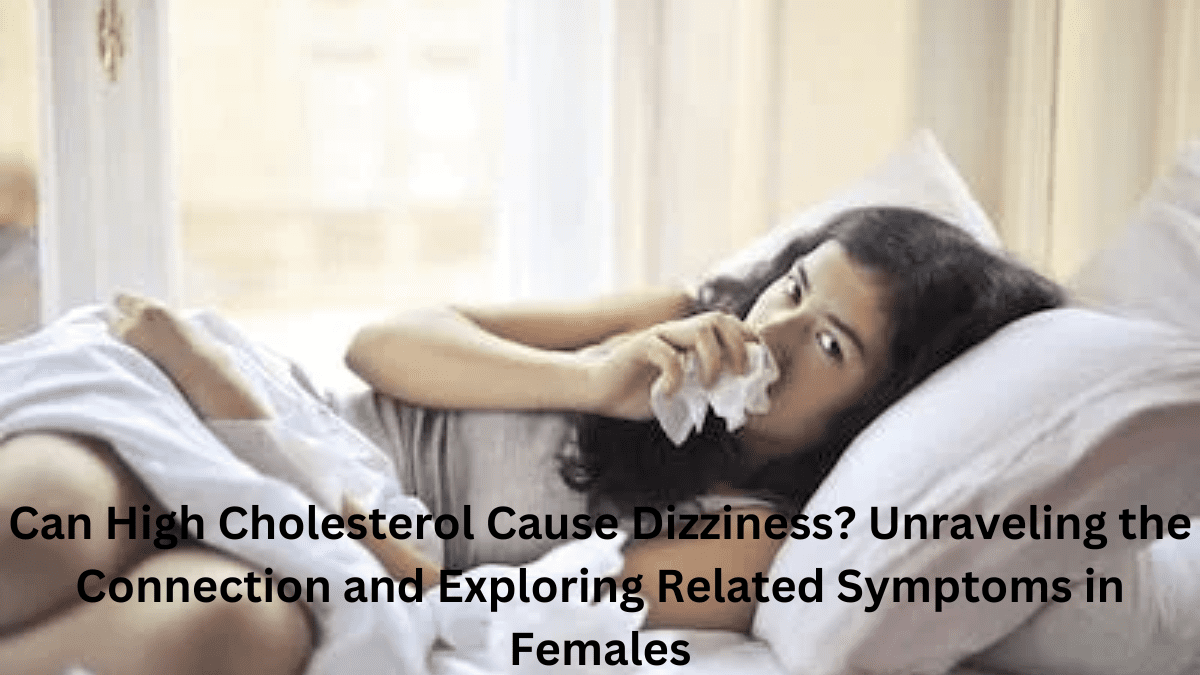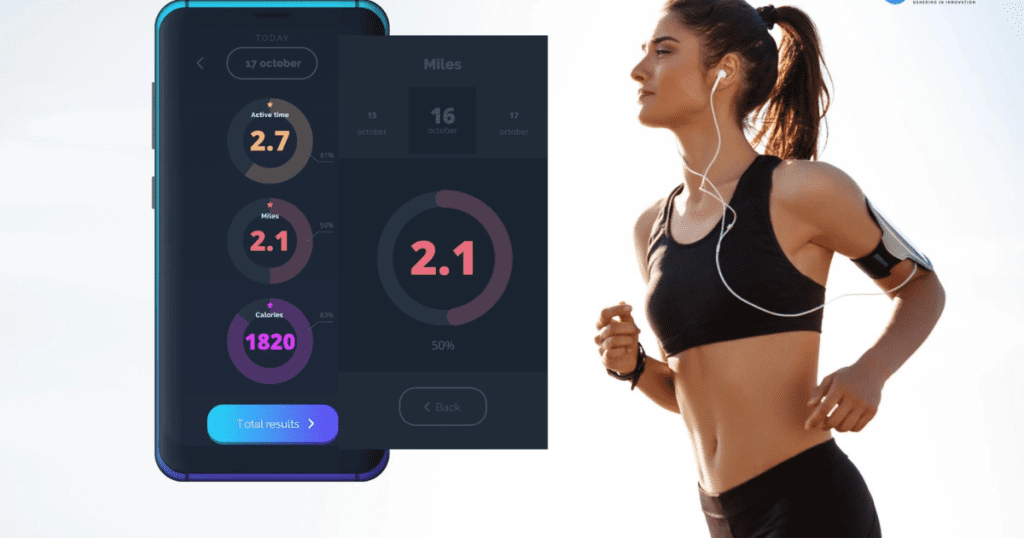High cholesterol is often perceived as a silent menace, impacting various aspects of our health. While its association with heart diseases is well-established, there’s a less-explored avenue that raises intriguing questions: can high cholesterol cause dizziness? This article aims to unravel this connection, shed light on related symptoms in females, and explore the broader spectrum of potential repercussions.
Contents
- 1 Understanding High Cholesterol: More than Just Numbers
- 2 The Dizziness Dilemma: Can High Cholesterol Be the Culprit?
- 3 Gender Matters: Symptoms of High Cholesterol in Females
- 4 The Low Cholesterol Paradox: Can Low Cholesterol Cause Dizziness?
- 5 Empowering Your Health Journey: Awareness and Action
- 6 Seeking Professional Guidance: Partnering in Health
- 6.1 Building a Collaborative Relationship
- 6.2 Regular Health Assessments and Lipid Panel Tests
- 6.3 Open and Honest Communication
- 6.4 Understanding Risk Factors and Personalized Plans
- 6.5 Educational Resources and Empowerment
- 6.6 Setting Realistic Goals and Tracking Progress
- 6.7 Lifestyle Modification Strategies
- 6.8 Monitoring Medication, if Prescribed
- 6.9 Regular Follow-ups and Adaptation of Plans
- 6.10 Embracing a Holistic Approach
- 6.11 Advocacy for Preventive Care
- 6.12 Cultivating Trust and Long-Term Relationships
- 7 In Conclusion: A Holistic View for Holistic Well-being
Understanding High Cholesterol: More than Just Numbers
Before delving into the potential link between high cholesterol and dizziness, let’s lay the groundwork by understanding the multifaceted nature of high cholesterol. It’s not merely about numbers on a lab report; it’s a complex interplay of lipoproteins, lifestyle choices, and their collective impact on our well-being.
Decoding Cholesterol Levels: A Balancing Act
The cholesterol narrative involves a delicate balancing act between low-density lipoproteins (LDL) and high-density lipoproteins (HDL). While LDL tends to hog the spotlight as the ‘bad cholesterol,’ HDL plays the crucial role of the ‘good cholesterol,’ working to maintain equilibrium.
The Dizziness Dilemma: Can High Cholesterol Be the Culprit?
Now, let’s address the million-dollar question: can high cholesterol cause dizziness? While the scientific community hasn’t provided a definitive answer, there are interesting insights that hint at a potential connection.
The Vertigo Variation: Adding another Dimension
In the realm of high cholesterol and its impact, vertigo becomes an additional point of interest. Does the unsteadiness associated with dizziness extend to a full-blown sense of spinning, and is high cholesterol a contributing factor?
Headaches and Dizziness: Unraveling the Relationship
Beyond dizziness, the intertwining of high cholesterol with headaches adds complexity to the narrative. Can these symptoms be seen as interconnected, and is there a potential cure for the elusive cholesterol headache?
Fainting Spells: A Critical Consequence?
As we navigate the symptoms associated with high cholesterol, the specter of fainting looms large. Can a spike in cholesterol levels be a precursor to fainting spells, and how can one mitigate this risk?
Gender Matters: Symptoms of High Cholesterol in Females
While the impact of high cholesterol is universal, it’s crucial to delve into how it manifests in females. Are there specific nuances and symptoms that women should be particularly attuned to?
Facial Signs: Is Your Face Betraying Your Cholesterol Levels?
The face, often considered a mirror of our health, might reveal more than we think. Are there telltale signs on the face that point to elevated cholesterol, and should we be paying closer attention?
Feet Speak Louder: High Cholesterol’s Footprint
As we explore symptoms specific to females, the focus shifts to the often-neglected extremities—the feet. Do high cholesterol symptoms leave an imprint on the feet, and what should women be mindful of in this context?
The Low Cholesterol Paradox: Can Low Cholesterol Cause Dizziness?
In our quest for answers, we encounter an intriguing paradox: can having low cholesterol be a catalyst for dizziness? The dynamics of cholesterol levels take an unexpected turn, challenging conventional wisdom.
While low cholesterol is often hailed as a health triumph, could it, paradoxically, lead to unexplained bouts of dizziness? Understanding the nuances of this lesser-explored scenario is crucial for a comprehensive view.
Empowering Your Health Journey: Awareness and Action
As we conclude this exploration into the intricate relationship between high cholesterol and dizziness, the emphasis shifts to empowerment. How can awareness of these dynamics empower individuals, especially women, to take proactive steps for their health?
Regular Checks: The First Line of Defense
Regular lipid panel tests emerge as a proactive shield against the silent progression of high cholesterol. For women, especially, incorporating these checks into routine health assessments becomes paramount.
Holistic Lifestyle Choices: Beyond the Numbers
Beyond the clinical realm, lifestyle choices play a pivotal role. From dietary habits to exercise routines, how can women adopt a holistic approach to managing their cholesterol levels and overall well-being?
Seeking Professional Guidance: Partnering in Health
In the intricate tapestry of health, the role of healthcare professionals emerges as a crucial thread, weaving expertise, guidance, and personalized care into the journey toward optimal well-being. As individuals, irrespective of gender, embark on the path of cholesterol management, forging meaningful partnerships with healthcare providers becomes a cornerstone for success.
Building a Collaborative Relationship
Creating a collaborative relationship with healthcare providers involves proactive communication and a commitment to shared decision-making. It’s not merely about seeking advice but fostering a partnership where both parties actively contribute to the overarching goal of health improvement.
Regular Health Assessments and Lipid Panel Tests
Initiating this partnership begins with regular health assessments and lipid panel tests. These routine checks provide a comprehensive snapshot of cholesterol levels, enabling healthcare professionals to tailor advice based on individual health profiles.
Open and Honest Communication
Communication forms the bedrock of any successful partnership. Individuals are encouraged to openly discuss their lifestyle, dietary habits, exercise routines, and any concerns related to cholesterol. This exchange of information equips healthcare providers with the insights needed for personalized recommendations.
Understanding Risk Factors and Personalized Plans
Healthcare professionals play a pivotal role in elucidating the intricacies of cholesterol management, helping individuals understand their unique risk factors. From family history to lifestyle choices, a personalized plan takes these factors into account, creating a roadmap for effective cholesterol control.
Educational Resources and Empowerment
A collaborative approach extends beyond clinical consultations. Healthcare providers serve as valuable sources of educational resources, empowering individuals with knowledge about cholesterol, its impact on health, and practical steps for improvement. This knowledge empowers individuals to actively participate in their health journey.
Setting Realistic Goals and Tracking Progress
Together with healthcare providers, individuals can set realistic goals for cholesterol management. Whether it’s achieving specific lipid profile targets or adopting lifestyle changes, these goals become milestones that are tracked and adjusted in tandem with professional guidance.
Lifestyle Modification Strategies
Healthcare professionals, including nutritionists and lifestyle coaches, contribute expertise in crafting tailored lifestyle modification strategies. These may include dietary adjustments, personalized exercise plans, and stress management techniques – all integral components of effective cholesterol management.
Monitoring Medication, if Prescribed
In cases where medication is prescribed, the partnership involves vigilant monitoring of its efficacy and any potential side effects. Open communication about medication adherence and any concerns ensures that the treatment plan aligns with individual needs and preferences.
Regular Follow-ups and Adaptation of Plans
The journey toward optimal health is dynamic, requiring periodic reassessment and adaptation of plans. Regular follow-up appointments with healthcare providers facilitate ongoing adjustments based on progress, challenges, and evolving health priorities.
Embracing a Holistic Approach
Beyond cholesterol numbers, a holistic approach considers overall well-being. Healthcare professionals guide individuals in understanding the interconnectedness of health factors, emphasizing that cholesterol management is part of a broader canvas that includes mental health, sleep patterns, and other facets of wellness.
Advocacy for Preventive Care
As advocates for preventive care, healthcare providers encourage routine check-ups even in the absence of apparent symptoms. Preventive measures are woven into the fabric of the partnership, ensuring proactive management and early intervention when needed.
Cultivating Trust and Long-Term Relationships
Ultimately, the partnership between individuals and healthcare providers is a journey of trust. Cultivating a trusting relationship fosters a sense of security, enabling individuals to openly discuss concerns, adhere to recommendations, and engage in long-term health management.
In the intricate dance of cholesterol management, the partnering of individuals with healthcare professionals is a harmonious melody, where expertise meets personal agency, and the shared goal is vibrant health. Through this collaboration, the tapestry of well-being is woven with threads of knowledge, support, and a shared commitment to a healthier, more resilient life.
In Conclusion: A Holistic View for Holistic Well-being
In the quest to answer the pivotal question – can high cholesterol cause dizziness?—we’ve navigated a spectrum of symptoms, delved into gender-specific considerations, and challenged preconceived notions about cholesterol dynamics. The takeaway is not just a quest for answers but a call to embrace holistic well-being.
As we embrace this holistic perspective, acknowledging the interconnectedness of symptoms and their potential implications, we step into a realm where health is not just about numbers on a report. It’s about understanding the body’s language, recognizing subtle cues, and steering our health journey with informed choices.
So, can high cholesterol cause dizziness? The journey to unravel this connection might not yield a definitive yes or no. Still, what it does offer is a nuanced understanding of our bodies—intelligent, interconnected, and deserving of our mindful attention.
Remember: Your health narrative is ongoing; make each chapter a testament to your well-being.




